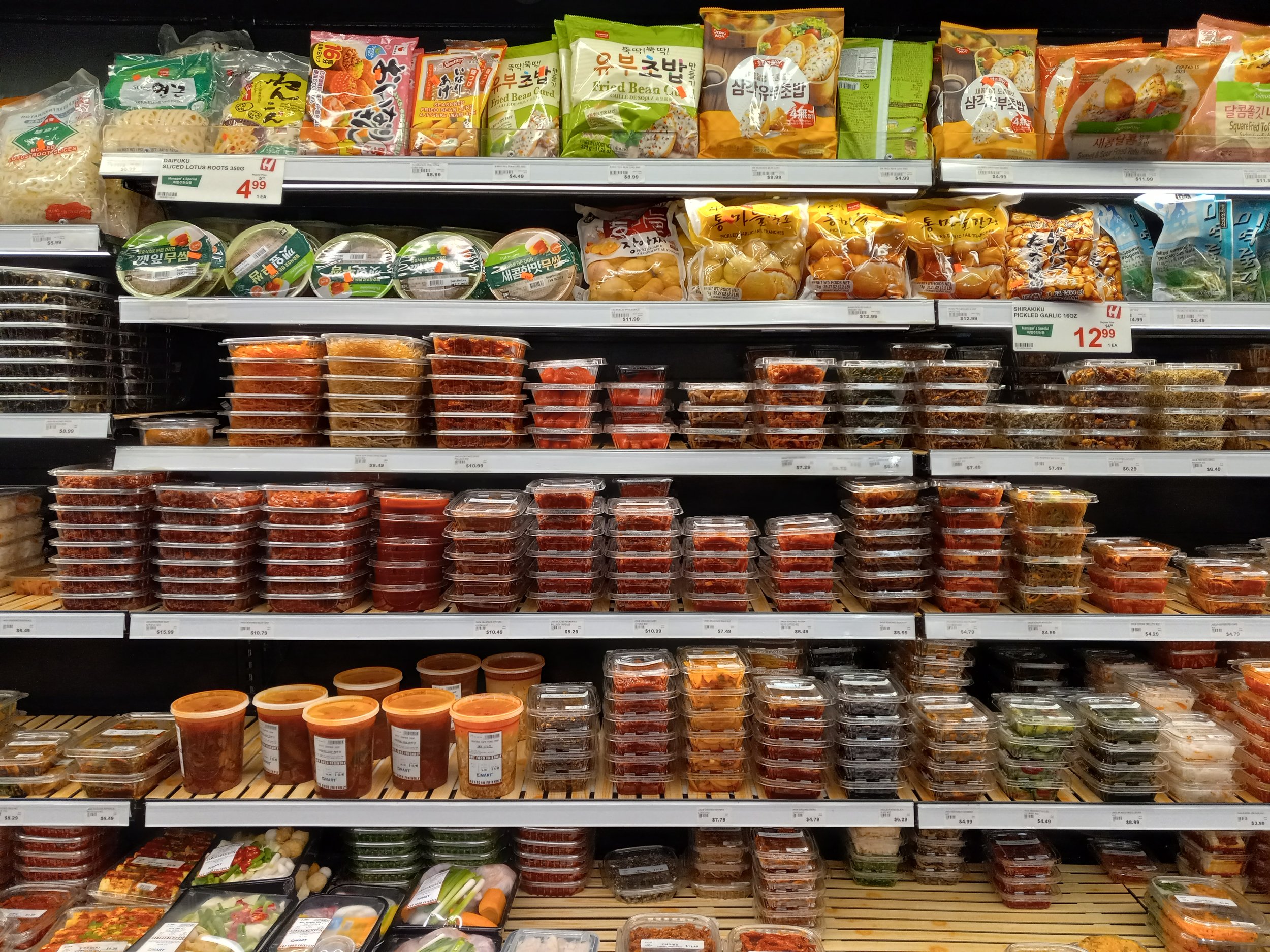We are what we eat.
There is an H Mart on 32nd Street in Manhattan Koreatown. It’s a landmark for visitors to the district. It’s also the only major grocery store on the street.
This picture was taken not long after the store opened for the day at around 8 a.m. in September. There were no shoppers – just supermarket staff stacking the shelves and pushing carts out of a tiny elevator not accessible to the public.
H Mart used to be a marker of identity. When the store was located on the north side of 32nd street, the shoppers were almost exclusively South Korean or Korean Americans. The aisles were narrow and shopping was almost always an uncomfortable experience. But somewhere between the frozen packs of pastel-colored fishcakes and plastic tubs of red chili pepper paste, the shoppers were not merely engaging in a transaction. They appeared to be reaffirming their identity: We are what we eat.
The evolution of this now highly successful mega-chain, founded by hard-working immigrants, is serving as a metaphor for who consumes Korea in Greater New York. First it was Koreans and Korean Americans. Japanese and Chinese shoppers were next – with international students studying at Columbia or NYU flocking to buy readymade food items.
Today, the food on sale at H Mart appears to hold mass appeal across a new demographic – Mainstream America. Office workers in their 20s and 30s, Black and white, men and women, and everyone in between. They file in, seemingly oblivious to the 20 percent, 30 percent hike in the price of prepared food items, like the spicy squid banchan, or the garlicky spinach called Sigeumchi Namul.
It’s been said Korea has become an important contributor to global culture. New Yorkers are paying more attention to Korean experiences and tastes. That’s not insignificant – because it appears to be swimming against the current of other sentiments that swept across the city during the COVID-19 pandemic.
We’ve put the pandemic behind us. I know we can’t draw a straight line between the number of Americans watching Squid Game and the diminished attacks against Asian Americans, or BTS’ visit to the White House and the fewer hate crimes reported in New York and San Francisco.
But culture is powerful.
Just ask H Mart.
